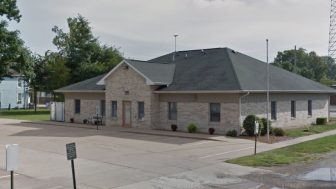Aurora Alcoholics and Narcotics Recovery
10782 E Alameda Ave
Aurora, CO 80012
About Aurora Alcoholics and Narcotics Recovery
Aurora Mental Health Center Alameda in Colorado provides compassionate and community based mental health and addiction treatment services. They support individuals and families of all ages and cultural backgrounds in Aurora and areas.
Crisis Care Available at All Hours
The center stands out for its integrated primary and behavioral health care. I like that they have 24 hour walk-in crisis services and a trauma informed treatment environment.
Medication management and psychiatric services support comprehensive care. Crisis intervention and stabilization are available for urgent needs. Clients benefit from case management and ongoing coordination to ensure continuity of care.
Culturally Competent Treatment for Addiction
What stands out to me are their culturally responsive programs including bilingual services. They have specialized care for youth and seniors as well as justice involved clients.
The program features multiple locations throughout the community. You can also engage in holistic wellness services and education initiatives.
Behavioral Healthcare for All Ages
The center serves all ages including children, teens, adults and elders. Specialized programs support vulnerable populations to include individuals experiencing homelessness. They emphasize inclusive and trauma informed care.
Clients highlight the caring staff and the positive impact of treatment. They note improvements in emotional stability and overall wellbeing. Some mention occasional scheduling delays, but report a supportive and professional experience.
Financially Accessible Treatment in Aurora
The center accepts Medicaid and Medicare and most health insurance. Sliding scale fees and financial assistance are available to ensure affordable access to care.
This treatment center is near Del Mar Park which offers a nearby green space, open fields and outdoor recreation for clients and families to enjoy between treatment sessions. Additionally, the Aurora Municipal Center is a short distance away featuring parks, civic amenities and event spaces.
The treatment center is also conveniently located near public transportation to ensure ease of access to care.
Addiction Treatment Programs
Each alcohol rehab in Illinois is unique, but most include three basic aspects of treatment: medical detox, psychotherapy, and medication. Through these methods, participants receive treatment for the physical, mental, and emotional aspects of alcohol use disorder.
Drug rehab in Illinois is designed to help men and women recover from drug addiction. The length of the program and its intensity vary, based on the individual’s needs. It’s important to find the right program to suit your unique situation and challenges.
Levels of Care
Outpatient rehab in Illinois may be brief or long-term, depending on the individual. During this time, you will maintain membership in a support group as well as attend one-on-one counseling sessions. The focus is ongoing development of life skills that will prevent relapse.
Inpatient rehab in Illinois features intensive clinical supervision and a highly structured and supportive environment, meaning this level of care is especially well suited for clients just beginning their recovery journey and those at risk of relapse.
The first step toward a drug-free future is typically detox. This initial phase of drug rehab in Illinois can last up to a week. During this time, addictive substances are slowly and safely cleansed from your body.
Nearby Treatment Centers

710 North Eighth Street
Springfield, IL 62702

1227 South 9th Street
Springfield, IL 62703

319 E Madison St
Suite 2F,
Springfield, IL 62703

120 North 11th Street
Springfield, IL 62703